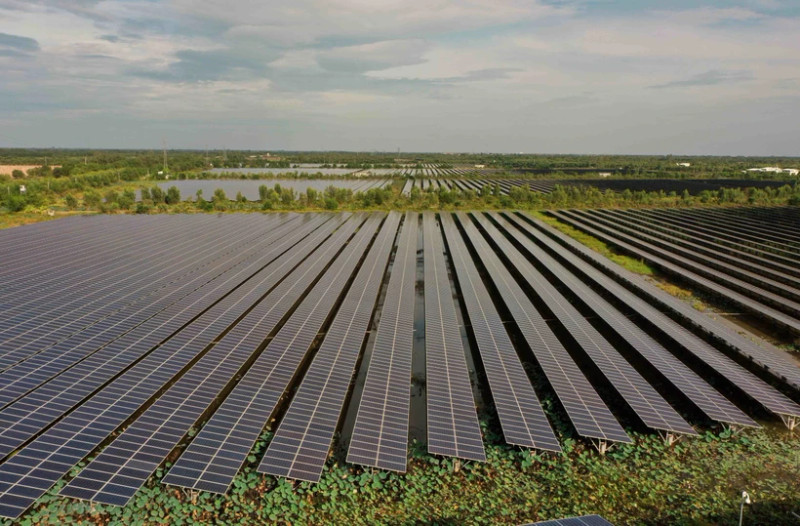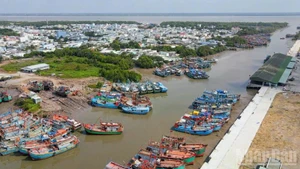According to the annual Mekong Delta Economic Report 2022 conducted by the Vietnam Chamber of Commerce and Industry (VCCI)’s branch in Can Tho, the region boasts huge potential for development of renewable energy, especially wind, solar and biomass power.
Meanwhile, the national renewable energy development planning until 2035 estimated that more than 68,600 MW of wind power and 31,500MW of solar power could be generated in the region.
VCCI experts suggested the Mekong Delta capitalise on its potential and the nation’s priority for renewable energy development to shift to new renewables, helping bolster the local economy, reduce carbon footprints, and lessen dependence on imported materials.
With an ambitious target of turning the region into an energy hub, many localities have proposed various projects to the National Power Development Plan VIII.
Having no renewable energy projects yet, Kien Giang is studying 15 solar energy projects with total capacity of 2,427MWp, 12 of which, with a combined capacity of 1,715 MWp, have been proposed to the Ministry of Industry and Trade.
Deputy Director of the provincial Agriculture Extension Centre Le Van Dung said that solar energy has advantages over fossil fuels as it helps reduce environmental pollution, and establishes a better breeding environment that ensures stable production for farmers.
Meanwhile, Director of the Department of Industry and Trade of Hau Giang Province Nguyen Quoc Toan said the locality has 129-MW solar power, 4,670-MW wind power and 96-MW biomass power.
He recommended development of renewable energy projects to competent authorities, and gave opinions to complete the plan to carry out the National Power Development Plan VIII during 2021-2030 with a vision to 2050.
Since power demand is expected to increase sharply until 2050, VCCI experts said Mekong Delta localities need to update, build forecasts, evaluate potential of the electricity projects, and pen long-term plans to create favourable conditions for development of the supply chain and support industry to increase production value.
Besides, they should work to attract international partners, enterprises and skilled workers so as to take full advantage of the use of renewables, they said.
According to Dr. Nguyen Anh Tuan, former Director of the renewable energy centre under the Ministry of Industry and Trade’s Institute of Energy, Vietnam has installed a total power capacity of 80,704 MW, ranking second in ASEAN and 23rd worldwide, of which 20.5% is from solar energy.
Solar power, given its cheap price, should be prioritised for development. However, such challenges as high investment costs, a lack of suitable infrastructure, and instability of the energy source due to weather conditions should be handled when developing solar power.
He suggested the Government provide concessional loans for investors to encourage the development of the energy.
















